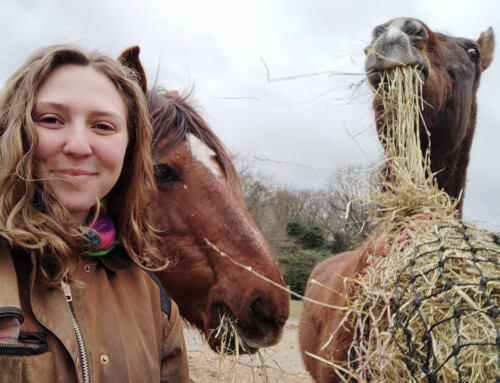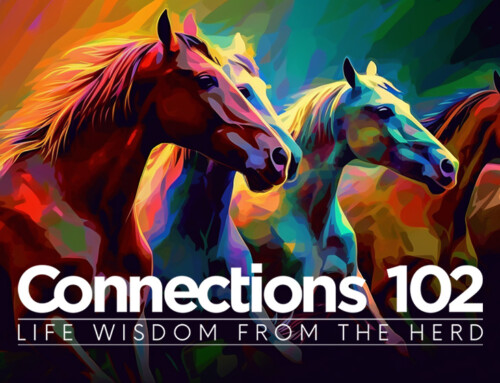IFEEL Qualifications goes to the National Equine Forum 2017
We spent a most interesting day at the National Equine Forum’s 25th annual meeting in London. This event is held to present and debate matters covering a diverse range of topical aspects, development and innovation within the equestrian industry in the UK, and is open to anyone to attend. There was the opportunity to question the speakers after each talk and great networking over a delicious buffet lunch; making it a very inclusive, sociable day.
Something that affects many of us is the rise in business rates; these have been crippling for some yards. Sarah Phillips (Chief Operating Officer, BHS) spoke on this matter and how there may be a possible review on exemptions especially for charities. The government based their rate rises on the rental value of individual stables, outside the horse industry. So if a yard is in an area where alternative use of stables can elicit a high rental value then that is what they have been inflated to, hence some yards being hit with an increase of 350%! It does make one think however, whether punitive rate rises may result in more horses living out 24/7.
A hot topic for many speakers was our exit from the EU and how it may affect everything from welfare to transport to employment; with the equestrian sector being the second largest rural employer in Britain. Lord Gardiner (Parliamentary Under Secretary for Rural Affairs and Biosecurity) spoke to reassure us of his support and assured ‘voice’ in the house and encouraged direct dialogue to his department on all rural concerns going forward. He intimated that as negotiations were at such an early stage we really do have a voice. So don’t be the silent masses….get involved in change, was the message. Also of note was one of the key documents that sits alongside the Animal Welfare Act 2006 is the statutory Code of Practice for the Welfare of Horses, Ponies, Donkeys and Their Hybrids – the “Horse Code” as it is known. Last year, the Equine Sector Council very helpfully went through the Horse code suggesting where it could be updated. These changes have been taken on board and a new updated Horse Code will be presented to Parliament later this year.
An interesting and most welcome development in the equine passporting system was presented by Stewart Everett (Chief Executive, Equine Register) The Central Equine Database will be launched later this year after rigorous industry testing and will put the UK at the forefront of animal identification. The system is a fully digital, real time bio-metric equine passport system which will hopefully reduce criminality, promote good owner practices and increase animal welfare. He even talked of a free public chip checker so any one could check the identification of a horse.
For those of us who use saddles Dr Sue Dyson (Head of Clinical Orthopaedics, Centre for Equine Studies) gave an illuminating talk based on her extensive studies of saddle fitting and equine health. She discovered that 19% of her study cohort had ill-fitting saddles (to the point of causing lameness, pain and muscle wastage) and 33% had unbalanced saddles. She highlighted the need for much more frequent saddle checking by an approved fitter; in fact as her studies showed, a horse can change shape, enough to need its saddle refitted, every two months! And we thought once a year was enough.
Following on Dr Caroline Benoist (Manager of Research and Education, The NS Academy) presented her research on the action of bits in the mouths of horses; highlighting injuries and misconceptions as to the way these move when pressure from the reins applied. Her studies used X rays to watch the action of various bits whilst in the horse’s mouth. She stated that “the bitting industry must bear the responsibility of educating the equestrian industry in regards to bits and bitting in an effort to improve the welfare of the horse”. She also raised the issue that the current gap in rigorous scientific knowledge within the bitting industry has severe ramifications for equine welfare, the prevalent lack of knowledge results in the oblivious use of severe bits and the use of escalating severity in bits in an attempt to cover up training faults. Once again, equine welfare was at the heart of this talk.
There was an open panel discussion with many interesting questions raised by the audience and the overall opinion of the speakers was, to quote Dr Tim Parkin (Head of Equine Clinical Sciences, University of Glasgow) “there is a fundamental lack of education on bits, saddles and tack fitting in general, especially the fashion trends followed for example crank nosebands. This needs to move forward for the sake of horse welfare”
On the subject of biosecurity Andrea Vilela (Education & Campaigns Manager, Redwings Horse Sanctuary) gave a thought provoking and practical talk on how every yard should have an ‘Outbreak Control Plan’ in the case of infectious diseases like Strangles. This is what they had in place at a Redwings sanctuary and meant the disease was isolated, controlled from spreading too far and an agreed plan rolled into action. She spoke of the need for greater communication from yards with outbreaks and instead of vilification and pessimistic attitudes we should be a communicative supportive network, ensuring we are educated on the early signs and precautionary biosecurity steps put in place to isolate and reduce spread. The simplest of ways we can help is simply regularly taking our horses temperatures, knowing what the ‘norm’ for them is and being alert to any changes.
Lynn Peterson (Chief Executive, BHS) introduced the Changing Lives Through Horses programme, much to the delight of the audience, by playing ‘It’s a Kind of Magic’ by Queen to a beautiful slide of a man and horse in deep connection. The talk did not contain anything we haven’t already seen on their website but her passion and obvious commitment to the programme was evident. She said “why are we doing this? Because we must and because we can” and went on to say as one of the highest profile and most financially supported equine organisations she felt it was their duty to give something back. The last part of this presentation included the moving video of young Liam whose poignant words “you’ve not made my life, you’ve saved my life” ended her uplifting speech.
Finally Princess Anne spoke, highlighting the need for our community to work together in a time of great change. To take the knowledge and research that is pouring out of this and other countries and use all methods of communication to work together, for the good of the horse. She told a story of Bobby Charlton who when asked whether he was sorry his (horse mad) wife and two daughters were always at the yard said “don’t ever apologise for horses, I always know where my daughters are, happy and secure with the horses” She ended by reaffirming the importance of horses as therapeutic beings with an ability to change lives.
All in all a very positive event. The wheels of progress are slow on a very large old machine but the message I took from this forum was; they are indeed moving forward and mostly for the good of the horse.
Maria Olarte-Equine Welfare Director, IFEEL Qualifications Ltd &
Mary Joy Johnson-Youth Programme Director, Dare to Live






